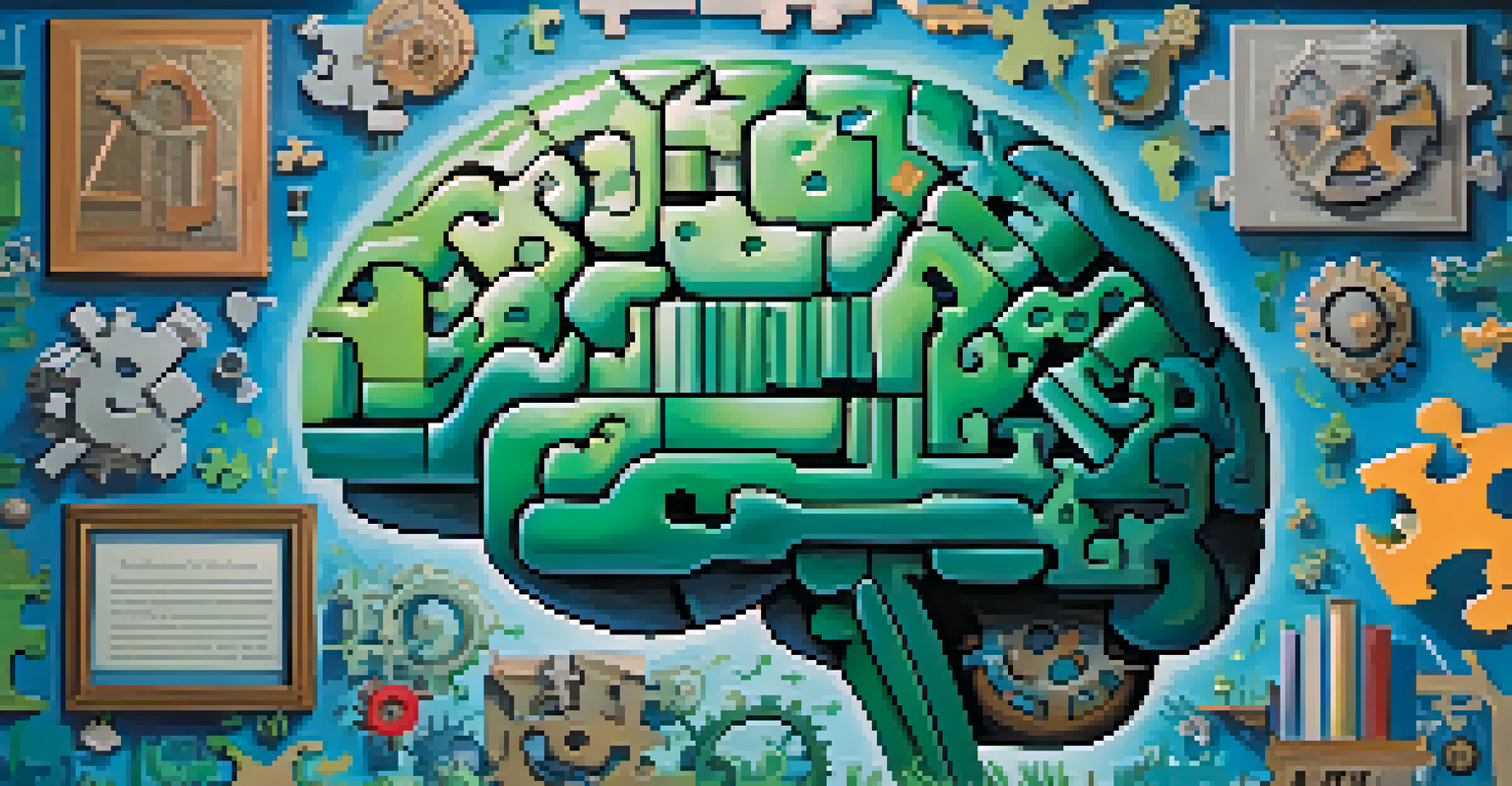How to Facilitate Online Debates for Critical Thinking

Understanding the Importance of Online Debates
Online debates serve as a powerful tool for fostering critical thinking skills. They encourage participants to articulate their thoughts, challenge assumptions, and consider multiple perspectives. By engaging in debates, individuals become more adept at evaluating arguments, which is an essential skill in today's information-driven world.
The greatest weapon against stress is our ability to choose one thought over another.
Moreover, these debates can be a safe space for exploring controversial topics, where participants can express their ideas without fear of immediate judgment. This sense of freedom can lead to deeper insights and more thoughtful discussions. As a facilitator, recognizing this importance can help set the right tone for the debate.
Ultimately, embracing the significance of online debates allows us to cultivate a culture of inquiry and open-mindedness. This not only benefits individual participants but also contributes to a more informed and engaged community.
Establishing Clear Guidelines for Participants
Before diving into a debate, it's crucial to establish clear guidelines that will govern the discussion. These guidelines should outline the rules of engagement, including how to respect differing opinions and how to provide constructive feedback. Setting these expectations helps create a productive environment where critical thinking can thrive.

For instance, you might encourage participants to use phrases like 'I understand your point, but...' to promote respectful dialogue. Additionally, specifying time limits for responses can ensure that everyone has a chance to share their thoughts without monopolizing the conversation. This structure fosters a balanced discussion.
Fostering Critical Thinking Skills
Online debates encourage participants to articulate their thoughts and evaluate arguments, enhancing critical thinking in an information-driven world.
By outlining these guidelines at the beginning, you empower participants to engage thoughtfully and respectfully. This not only helps maintain order during the debate but also enhances the overall quality of the discourse.
Choosing Relevant and Provocative Topics
Selecting the right topic is a vital step in facilitating an engaging online debate. Aim for subjects that are not only relevant to the participants but also thought-provoking enough to spark passionate discussions. Topics like climate change, social justice, or technology ethics can inspire participants to think critically and consider various viewpoints.
The art of conversation is the art of hearing as well as of being heard.
It's also beneficial to choose topics that have multiple facets and complexities, allowing for richer discussions. For example, instead of debating whether technology is good or bad, participants could explore the nuances of how it impacts privacy or social interactions. This complexity encourages deeper analysis and critical engagement.
By carefully selecting topics, facilitators can create an environment ripe for exploration and debate. Engaging discussions around these subjects can lead to valuable insights and enhanced critical thinking skills among participants.
Utilizing Digital Tools for Enhanced Engagement
In the digital age, there are countless tools available to enhance online debates. Platforms like Zoom, Slack, or even dedicated debate forums can provide the necessary space for discussion. Incorporating these tools not only makes the debate more interactive but can also help facilitate organization and structure.
For example, using polls or breakout rooms can allow participants to express their opinions and engage in smaller group discussions before returning to the larger group. This approach encourages quieter voices to be heard and fosters a more inclusive environment. Additionally, screen-sharing capabilities can help participants present their arguments visually, leading to a richer discussion.
Establishing Guidelines for Respect
Clear guidelines promote respectful dialogue and constructive feedback, creating a productive environment for debate.
By leveraging these digital tools, facilitators can create a dynamic and engaging atmosphere that promotes critical thinking and collaborative learning.
Encouraging Active Listening Among Participants
Active listening is a cornerstone of effective debate and critical thinking. It requires participants to fully engage with what others are saying, rather than simply waiting for their turn to speak. As a facilitator, you can promote this skill by encouraging participants to paraphrase or summarize each other's points before responding.
For instance, you might suggest that participants say something like, 'What I hear you saying is...' to demonstrate their understanding of the other person's argument. This not only shows respect but also encourages deeper engagement with the topic at hand. Active listening can lead to more thoughtful responses and a richer debate overall.
Fostering active listening not only enhances the quality of discussions but also builds a sense of community among participants. When individuals feel heard, they're more likely to engage openly and critically, creating a positive feedback loop of discussion.
Incorporating Diverse Perspectives and Voices
Diversity in perspectives is essential for enriching online debates. By incorporating voices from various backgrounds, experiences, and viewpoints, you can create a more comprehensive understanding of the topic. This diversity challenges participants to think critically and consider angles they may not have previously explored.
Encouraging participants to share their unique experiences can lead to robust discussions and help break down stereotypes or misconceptions. For example, inviting guest speakers with different expertise or life experiences can provide fresh insights that spark deeper inquiry among participants.
Embracing Diverse Perspectives
Incorporating voices from various backgrounds enriches discussions and fosters a deeper understanding of complex topics.
When facilitators prioritize inclusivity and diverse perspectives, they foster an environment where critical thinking flourishes. This approach not only enhances the debate but also empowers participants to appreciate the complexity of real-world issues.
Reflecting on the Debate for Continuous Improvement
After the debate, it's essential to reflect on the discussion and gather feedback from participants. This reflection allows you to identify what worked well and what could be improved for future debates. Encouraging participants to share their thoughts on the experience can provide valuable insights and help refine your facilitation skills.
Consider asking participants to complete a brief survey or engage in a group discussion about their experiences. Questions might include what they learned, how they felt about the engagement, and suggestions for future topics or formats. This feedback can be instrumental in enhancing the quality of future debates.

By prioritizing reflection and continuous improvement, you can ensure that each online debate becomes an opportunity for growth—not just for participants, but for you as a facilitator as well. This commitment to improvement reinforces the value of critical thinking in every discussion.